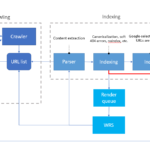Why Chronic Dieting Is Making You Tired, Hungrier & Stuck
By Dr. Aanu Gupta | Preventive Health & Fat Loss Coach
#MetabolicAdaptation #HormoneHealth #FatLossTruth
Introduction: The Hidden Cost of Chronic Dieting
If you’ve been cutting calories for weeks or months without seeing results — or worse, you’re feeling more tired, hungrier, and stuck — you’re not alone. Chronic dieting can backfire, not because you’re doing something wrong, but because your body is doing exactly what it’s designed to do: survive.
Survival Mode: Why Your Body Fights Back
When you stay in a calorie deficit for too long, your body perceives it as a prolonged famine.
Key Biological Responses:
- Slower metabolism to conserve energy
- Increased hunger signals to prompt eating
- Fat conservation as a survival strategy
This is called metabolic adaptation, and it’s not failure — it’s evolutionary biology at work.
Low BMR = Low Fat Burn
Your Basal Metabolic Rate (BMR) — the number of calories your body burns at rest — begins to drop.
Why Does BMR Drop?
- Muscle Loss: Lack of protein and resistance training leads to muscle breakdown
- Thyroid Hormone Suppression: T3 and T4 levels fall, slowing your metabolism
- Calorie Efficiency: Your body starts doing more with less energy
➡️ Result: You burn fewer calories doing the same daily activities.
Leptin Levels Plummet
Leptin is your “I’m full” hormone. When leptin drops:
- You feel hungrier
- Metabolism slows even further
- You may feel cold, tired, and irritable
This is called adaptive thermogenesis, and it’s one reason your diet feels harder over time.
Ghrelin Levels Rise
Ghrelin, your hunger hormone, surges when you’re in a chronic deficit:
- Cravings for sugar and fat intensify
- Normal meals feel unsatisfying
- Your brain chases high-reward foods
➡️ These cravings are not in your head — they are hormone-driven.
Cortisol Goes Through the Roof
Too much cardio, too little food = stress overload.
High Cortisol Leads To:
- Increased abdominal fat storage
- Sleep disruption
- Muscle breakdown
Chronic stress can reverse all your fat loss efforts — turning you into a fat storer instead of a burner.
Poor Sleep = More Hunger & Less Willpower
Dieting affects your sleep, and poor sleep makes dieting harder.
Sleep-Hormone Disruption:
- Low leptin + high ghrelin = hunger all day
- Less than 6 hours of sleep = 300–500 more calories consumed the next day
- Poor impulse control and emotional eating skyrocket
Sleep is not a luxury — it’s a metabolic necessity.
Thyroid Function Slows Down
The thyroid gland controls metabolism through T3 and T4 hormones. Chronic caloric restriction suppresses these hormones.
Signs of a Sluggish Thyroid:
- Fatigue despite rest
- Hair thinning or shedding
- Weight plateau despite strict dieting
Even a “perfect” diet won’t work if your thyroid is downregulated.
Mental Health Takes a Hit
Chronic dieting doesn’t just affect the body — it affects your brain.
Psychological Side Effects:
- Low serotonin & dopamine = mood swings, anxiety
- Food obsession
- Reduced motivation and increased fatigue
It’s not about willpower — it’s about neurochemistry.
How to Break the Cycle (Without Gaining All the Weight Back)
You don’t need to give up on your goals — you just need a smarter, hormone-friendly approach.
Here’s What Works:
✅ Reverse Dieting
Gradually increase calories to restore metabolic function
✅ Strength Training
Build muscle to raise BMR naturally
✅ Refeed Days
Periodic high-carb days to stimulate leptin and restore energy
✅ Quality Sleep
Aim for 7–9 hours per night to regulate hunger and stress hormones
✅ Reduce Excessive Cardio
Too much cardio = cortisol spike; focus on resistance work instead
Final Thoughts: Dieting Smarter, Not Harder
If your fat loss journey feels like a dead-end, it’s not your lack of discipline — it’s your biology calling for a reset. Chronic dieting triggers a cascade of hormonal and metabolic adaptations that make it harder to lose fat and easier to regain it.
✅ Give your body safety
✅ Restore hormonal balance
✅ Reignite fat loss with smarter strategies
Ready to Fix Your Metabolism?
If you’re tired of crash diets and stalled results, it’s time to heal first, burn later.
✨ DM me for a personalized hormone-smart fat loss plan
#PreventiveHealth #FatLossCoach #ReverseDieting #MetabolismFix #LeptinResistance #GhrelinControl
Author: Dr. Aanu Gupta
Preventive Health Consultant | Fat Loss Strategist | Hormone Health Advocate









